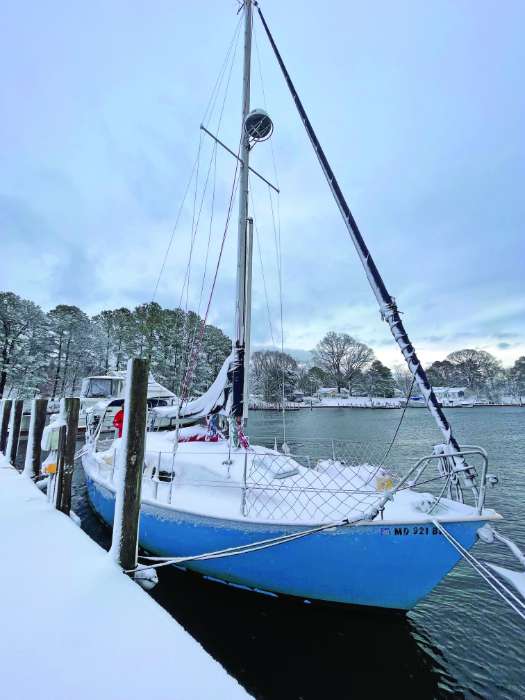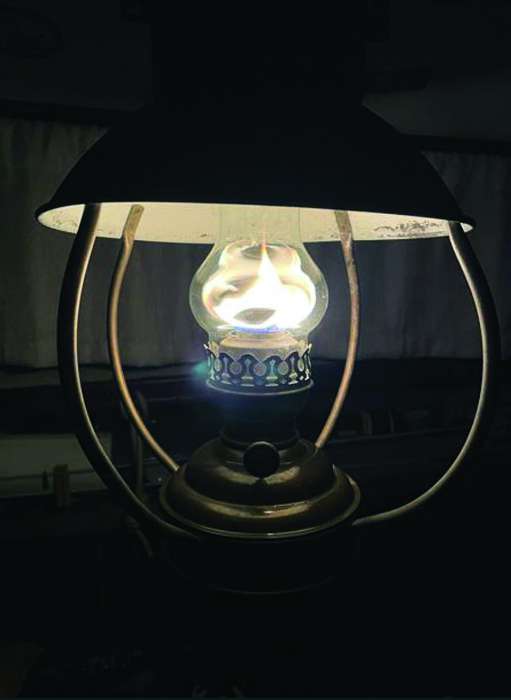Boat Heaters and Other Winter Boating Safety Concerns
If you are like me and are subscribed to a plethora of boating and sailing email lists from marine service providers, you have likely been getting an email about once a day for the past several months encouraging you to stock up on winterizing equipment. If you are even more like me, you have opted to ignore those emails and plan to continue enjoying all that the Chesapeake Bay has to offer even in sub-freezing temperatures. If so, you may be in the market for a heater.

There are many reasons why you might add a heater to your winter boating gear collection. Perhaps it is to protect a non-winterized inboard engine from freezing during cold snaps, or perhaps it is simply to keep yourself warm on a weekend trip. Heaters of all kinds are one of the primary causes of boat fires, however, so they must be chosen and used with care.
Permanently installed systems, such as a diesel heater with temperature control settings, are the safest choice—extra points if they have remote monitoring capability—but are not an option for everyone. Any type of combustion heater, such as an oil lamp or propane heater, is effective for a brief trip but should never be left unattended. This includes while you’re sleeping, even if you’re right next to it. Invest in a carbon monoxide detector, and if it is impractical to remove extra fuel after each trip, it should at least be stored in a compartment that vents to outside of the hull.

Any type of electric heater should have an automatic shut-off function if it gets tipped over. Better yet, it should also be designed to reduce the likelihood of tipping over in the first place—there are a variety of electric heaters available that are wide and flat. If you’re using an electric heater, make sure to keep it on the floor of your cabin, away from fabrics or other flammable materials.
Safe heaters are important, but they’re not everything. Check up on your boat regularly and start the engine often. Pay attention to the weather, especially the water temperature. Winter can be one of the best seasons to go sailing, with plenty of empty anchorages, no mosquitoes, and no sudden afternoon thunderstorms; all you need is a little preparation and a mindfulness for safety to make sure that your boat is ready to weather the cold with you.
By Kelsey Bonham
Five Winter Safety Tips From BoatUS
1. If your boat is in the water over the winter, never visit alone. Also, let the yard (or someone near a private slip) know you’re visiting. If the boat is stored on land, ensure the ladder (if required to board) is on a solid footing clear of ice and have a friend hold it while you’re ascending/descending. Securely tie it off at the top.
2. When aboard, remember the mantra “one hand for yourself.’ Keep one hand securely attached to the boat to steady yourself and prevent a fall. Decks may be extremely slippery. Bring a soft broom to help you remove snow.
3. Tarps and covers put on months prior may sag or loosen, potentially allowing moisture aboard. Keeping a tight lid is critical. DIYers should be certain that ice and snow shed easily and do not add tremendous weight that can damage stanchions, windscreens, or trailers.
4. Go under the winter cover and check enclosed spaces. Replace desiccants with fresh material. Keep lockers and compartments open to reduce mold. Ensure any scuppers and drains remain clear; if your tarp or cover does get damaged by storms, water needs a way out. Using an electric heater in winter can present a significant fire hazard.
5. If you notice that any jackstands have settled, call the yard or marina. Don’t attempt to move or adjust them yourself. Also ensure winter cover lines are not tied off to the jackstands as they could be pulled out from under the boat during high winds.
Find more winter safety tips at boatus.com




